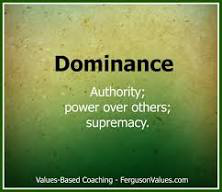“Power, like vanity, is insatiable. Nothing short of omnipotence could satisfy it completely.” ~ Bertrand Russell
I’m quite certain most of us, in this time of war and broken politics, have found ourselves asking: haven’t we’ve seen this picture before? Is history repeating itself?
In Bertrand Russell’s 1950 Nobel acceptance speech he attempts to answer this question. His perspective is raw and unvarnished but in this raw and unvarnished time, it seems altogether appropriate.
Here’s what Russell observed:
Insatiable Appetites —
He observed humans differ from other animals in one very important respect: we have some desires which can never be fully satisfied.
He notes that “when the boa constrictor has had an adequate meal, he goes to sleep, and does not wake until he needs another meal. Human beings are not like this; certain of our desires are insatiable.”

We seem to be driven to possess as much of some things as is humanly possible, regardless of need. Russell says this uncontrollable drive is dictated by the fear of not having enough.
He shares how he’d befriended two little girls from Estonia, “who had narrowly escaped death from starvation in a famine.” They lived with his family, and had plenty to eat. But, he said, “they spent all their leisure visiting neighbouring farms and stealing potatoes, which they hoarded.” He likened what he witnessed to John D. Rockefeller, who in his infancy had experienced great poverty and spent his adult life in a similar manner.
He says, “However much you may acquire, you will always wish to acquire more; satiety is a dream which will always elude you.”
Drive for Domination —
Russell humorously notes the world would be a much happier place if the only thing we wanted to do was acquire. But, sadly, that’s not the case. Some people want to dominate other people, even to their very ruin.
He observed, “Some seem good while they are oppressed, but they only wish to become oppressors in their turn: life is nothing but a competition to be the criminal rather than the victim…For love of domination we must substitute equality; for love of victory we must substitute justice; for brutality we must substitute intelligence; for competition we must substitute cooperation. We must learn to think of the human race as one family.”
Vanity —
Vanity, Russell says, is a motive of immense potency. He delightfully points out that “anyone who has much to do with children knows how they are constantly performing antics, and saying, “Look at me. Look at me.” It is this craving for attention that’s one of the fundamental desires of the human heart… It is scarcely possible to exaggerate the influence of vanity…throughout the range of human life, from the child of three to the potentate at whose frown the world trembles.”
Love of Power —
Russell observed, the love of power is closely akin to vanity, but it is not the same thing. “What vanity needs for its satisfaction is glory, and it is easy to have glory without power…Many people prefer glory to power. But on the whole these people have less effect upon the course of events than those who prefer power to glory. This love of power is the strongest motive in the lives of influential people. “And since power over human beings is shown in making them do what they would rather not do, the man who is actuated by love of power is more apt to inflict pain than to permit pleasure.”
Perhaps Bertrand Russell’s most riveting observation is “To understand the actual world as it is, not as we wish it to be, is the beginning of wisdom.”
The Second World War and the actual world brutally experienced by Russell’s generation left him with scars and ultimately caused him to reassess many of his prior beliefs.
“I had supposed until that time that it was quite common for parents to love their children, but the war persuaded me that it is a rare exception. I had supposed that most people liked money better than almost anything else, but I discovered that they liked destruction even better. I had supposed that intellectuals frequently loved truth, but I found here again that not ten per cent of them prefer truth to popularity.” He finally concluded, “I’d never die for my beliefs because I might be wrong.”
But in the end Bertrand Russell leaves us with these redeeming passions:
“Three passions, simple but overwhelmingly strong, have governed my life: the longing for love, the search for knowledge, and unbearable pity for the suffering of mankind.”
Just a thought…
Pat
NOTE: We are experiencing some problems when people try to reply directly to a post. Until these issues are resolved, please send any comments directly to Pat at pjmoriarty48@gmail.com.
Copyright © 2022 Patrick J. Moriarty. All Rights Reserved.
Would you like to submit a post to Just A Thought? To learn more, please click here.






